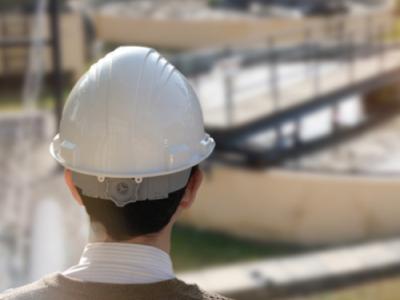5 Tips For Efficiently Managing An Industrial Wastewater System

Water is used in all kinds of commercial and industrial processes, including heating and cooling, cleaning, and process applications. Proper disposal of this water after use is heavily regulated and protects human and environmental health. Wastewater management presents many challenges both from a regulatory and an operations standpoint. Understanding the basics of managing an industrial wastewater system will assist you with compliance and help you keep your costs contained.
Types of Industrial Wastewater
There are many ways to categorize industrial wastewater. One way is according to pollutant type. Another way is by destination once it leaves your facility. This includes direct discharge to surface waters and/or ground water (including water that enters storm sewers), and indirect discharge, meaning that the wastewater is carried to a publicly owned water treatment facility through a sanitary or combined sewer system.
It’s important to be aware of exactly what is in your wastewater as well as how it is discharged, to ensure safe handling and regulatory compliance. You’ll also save money and protect the environment by making your wastewater system as efficient as possible. Here are five of the most important tips to keep in mind as you manage your industrial wastewater system.
1. Know and respect your permitting obligations. Virtually every aspect of wastewater management is heavily regulated. Before taking any action with your wastewater system, contact the appropriate environmental and/or sewer authorities and communicate your needs to them. They will help you identify the permitting procedures you will need to follow. You will also need to create an operations and maintenance (O&M) manual for every wastewater process in your facility. Compliance is not a one-and-done task. Regulations are constantly changing, so make it a habit to check up on existing regulations regularly, and stay alert for new ones that may apply to your facility.
2. Know your processes. If you’re not intimately aware of the wastewater processes in your facility and how they work, it would be a good idea to check up on these. You should know exactly how much wastewater you are generating, and from where in your facility — including point sources for pollutants. If it’s not clear where a pollutant is coming from, you may need to do some sampling at different points in your system. Depending on what you discover, you may need to update your permitting, or you may decide to switch to more sustainable or cost-effective methods.
3. Know your effluent. Knowing and documenting the characteristics of your wastewater, including such elements as temperature, pH and pollutants, will help you design your system to operate in a more efficient manner. It is also a required part of many permitting processes.
For instance, the Clean Water Act designates a number of “conventional” pollutants, including oil and grease, fecal coliform, pH, total suspended solids (TSS), and biochemical oxygen demand (BOD5). As a class, these are distinct from the dozens of “toxic” pollutants identified by EPA, some of which have been designated as “priority toxic” pollutants. Wastewater containing each of these types of pollutant requires permitting and treatment appropriate to the pollutant type.
4. Know your flow. Flow measurement provides essential metrics for managing any industrial wastewater system. The input of water into your facility needs to balance with measured output. If it doesn’t, you could have leaks or other discrepancies in your system — and this could have very significant efficiency and/or compliance implications. Be sure to select the appropriate flow measurement equipment for your facility; contact us here if you need assistance.
5. Know your tasks and responsibilities. Proper maintenance of an industrial wastewater system requires operators to consistently keep up with daily, weekly, monthly, and annual tasks and obligations. These include:
- Maintenance: Regular equipment maintenance, software updates, cleaning, etc. keep your facility safe and efficient.
- Notifications: Spills and other abnormal occurrences must be reported to the proper authority in a timely fashion.
Licensing: Know what you need to do to stay up to date with individual and facility licensing requirements, and give yourself ample time to prepare for renewal.
All of these tasks should be documented and scheduled, and your staff trained in how to execute them properly.
How to Get Started
While all of the above points apply to every facility, your site and situation are unique. If you would like to make sure you’re operating your facility in full compliance and as efficiently as possible, contact us for a free wastewater system review.





